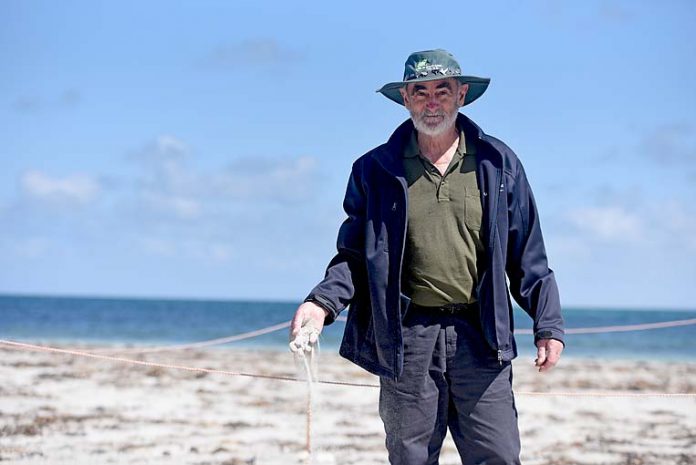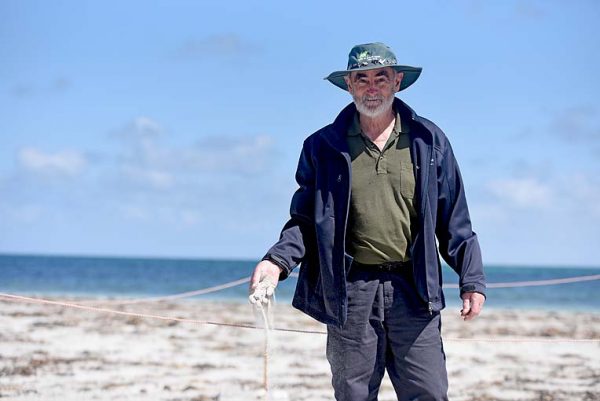

A LIMESTONE Coast environmental group believes stricter regulations limiting beach access for off-road vehicles – including seasonal closures – should be introduced.
The Friends of Shorebirds South East has expressed concerns through a parliamentary inquiry into off-road vehicle access across the state, citing the impact on shorebird nesting areas, including the endangered hooded plover which nests at several Limestone Coast sites.
In a submission to the inquiry, the group said vehicles contributed to the direct crushing of eggs or chicks during shorebird breeding season, as well as a disturbance to feeding and roosting sites of the migratory and resident shorebirds.
Friends of Shorebirds South East chairperson Jeff Campbell said the group submission was an attempt to see some type of control on off-road vehicles.
“At the moment it seems to be a free for all with no controls or enforcement of speed,” Mr Campbell said.
“We do not think it is possible to close the beaches entirely, but more control of where people can go would be fantastic.
“We are also calling for more education to allow people to learn of the damage they can do if they drive too far up on the beach.”
According to Mr Campbell, more seasonal closures at particular locations should be introduced, including at the popular Danger Point near Port MacDonnell.
“I do not understand why there cannot be sections closed to vehicles,” Mr Campbell said.
“There is also the solution of more seasonal closures and maintaining speed limits.
“At the moment we do have signs up and have roped around hooded plover nests – which are common here in the Limestone Coast – to ask people to stay on the track.
“It is a very important side of things for shorebirds, as vehicles on the beach can disturb their feeding and nesting habits.”
Natural Resources Management Lower Limestone Coast district ranger Ross Anderson said visitation and vehicle use on beaches increased on an annual basis and warned of the impact on the hooded plover population.
“Vehicles can be driven on a vast majority of beaches within the Limestone Coast,” Mr Anderson said.
“Hooded plovers nest directly on the sand above the high-tide level on the beach or the adjacent dunes.
“Their nests are hard to see and off-road vehicles can inadvertently destroy nests.”
Mr Anderson said hooded plover chicks were tiny and also freeze when threatened.
“This makes them very difficult to see and are susceptible to being run over,” he said.
“However they are susceptible to a range of disturbances including foxes and dogs predators and disturbance by human activity.
“Their habitat has been modified by weed invasion and coastal development with managing vehicles only a part of the picture.”
The district ranger said off-road vehicle users should plan their trip in advance and check tides and swells.
“They should also drive below the high-tide mark, in many areas the beaches can be accessed without driving on them and alternatives should be considered therefore drivers should stay on the tracks,” he said.
The parliamentary committee is currently considering the efficacy of the current regulatory and legislative framework around off-road vehicle access, the impact on the environment, including protected and coastal areas and the effects on the state’s tourism, recreation, land rehabilitation and loss of biodiversity.







